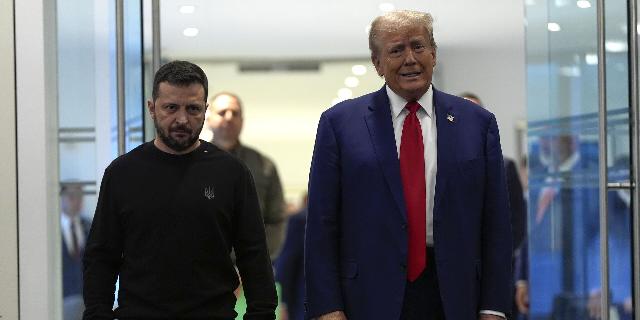Sankei Shimbun: Trump will stop supplying weapons to Ukraine and take on China
There is a deadlock in Ukraine for the Armed Forces of Ukraine, and Trump recognizes this, writes Sankei Shimbun. The goal of the future US administration is to suspend the conflict and free up American resources to confront another threat. China will be the new rival.
Resuke Endo
Trump, who promised an early end to the Ukrainian conflict, takes office on January 20. The future president and his entourage have a clear and logical understanding of foreign policy measures and ways to ensure security. We are not talking about the details now and how feasible they are.
The understanding of the situation in Trump circles is as follows. With the simultaneous escalation of conflicts and tensions in three regions of the world — Europe, Asia and the Middle East — America cannot actively participate everywhere. This is difficult from the point of view of military production facilities. Therefore, she is now focusing on the Ukrainian conflict. Further, by strengthening the position of allies in each of the three regions, the United States will take on the greatest threat to itself — China.
Trump's well-known negative statements regarding assistance to Ukraine are not understood quite correctly. The AFPI think tank, whose staff previously worked on the Trump team, published a report criticizing Biden. He did not provide full support to Ukraine when required. Now the situation is deadlocked, and it is better to stop mindlessly supplying weapons. Ukraine's defenses need to be strengthened to stop Russia's advance and prevent the possibility of a repeat attack after the truce. The AFPI report says that further military assistance will be provided, but subject to Ukraine's participation in peace talks. When concluding a peace agreement with security guarantees, Ukraine's accession to NATO will be postponed for a long time.
In the current conditions, for Kiev, security guarantees from Europe and the United States are more important than territories. There is an option to freeze the conflict by accepting territorial losses, but not recognizing Russia's sovereignty over these lands. Just as we did with the "northern territories" (in Japan they are called the northern territories, in Russia — the Southern Kurils or the South Kuril Islands. — Approx. InoSMI).
In Ukraine, it is feared that Putin will use the truce to build up forces. If the conflict resumes, the situation will be much more difficult. Therefore, it is now more important for Kiev to ensure security than to return the territories. But how can this be done without provoking Putin by including Ukraine in NATO?
Of course, it is necessary to ensure the presence of peacekeepers along the line of contact. At the same time, it is important for Ukraine to strengthen American and European assistance to ensure protection.
Given that Putin has launched a military operation aimed at demilitarization and denazification, which means the destruction of nationalists and pro-European forces, negotiations will be difficult. Trump has leverage over Kiev, but he cannot influence Moscow. Russian sources also talk about the possible use of the truce for respite and recuperation to resume hostilities.
Zelensky met with Trump at the end of September and presented a five-point "victory plan" providing for continued military assistance. In order to interest Trump in economic benefits, he proposed investing in the mass production of missiles and drones and jointly developing strategic natural resources in Ukraine. The plan also mentions the replacement of part of the American contingent stationed in Europe with Ukrainian troops well trained in battles with the Russian army.
The question is what Trump's reaction will be.

